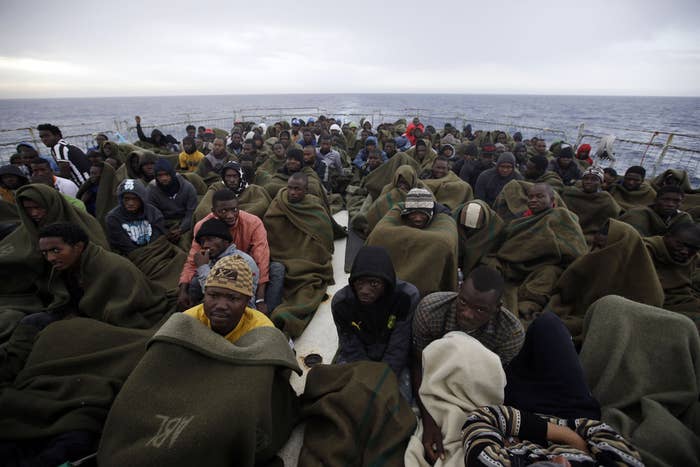Migrant deaths in the Mediterranean sea have passed the 2,000 mark so far this year, making 2015 on pace to become the deadliest for people desperately trying to reach Europe, according to the International Organization for Migration (IOM).

Of those who died attempting the perilous journey on rickety boats packed to the brim, the majority perished in the Channel of Sicily on the central Mediterranean route connecting Libya and Italy, according to the latest IOM report.
Last week, 19 people died in the Channel of Sicily. In 2014, a total of 3,279 migrants lost their lives trying to make the journey.
"It is unacceptable that in the 21st century people fleeing from conflict, persecutions, misery and land degradation must endure such terrible experiences in their home countries, not to mention en route, and then die on Europe's doorstep," said IOM Director-General William Lacy Swing.
In spite of the already heavy death toll and the crisis showing no signs of abating, European leaders have been unable to come to a consensus in regards to the best way of tackling the migrant problem.
In May, EU foreign and defense ministers voted in favor of a military mission against the smugglers currently making high profits out of smuggling hundreds of people a day into European territory.
European officials have also presented an "EU-wide resettlement scheme to offer 20,000 places", to be distributed proportionally among all EU countries, over the next two years.
EU leaders, mindful of the rising anti-immigration sentiment among the European electorate, also proposed to tackle the issue at the source by setting up a Common Security and Defense Policy operation in the Mediterranean. It would dismantle — by force if necessary — the people smugglers' networks, as well as destroy their infrastructure.
The military option, in the form of boots on the ground in Libya, which is where most of the boats leave from, has already been discarded by the major European powers.
But as war rages on in Syria, and poverty and conflict continue to plague a number of African countries, the initiatives proposed by EU officials so far have proved ineffective against the increasing number of people willing to risk everything for a new beginning in Europe.
"Given the high number of asylum seekers and refugees who put their lives in the hands of traffickers and smugglers, states need to increase safe alternative routes for those most in need of protection to enter Europe," Save the Children CEO Justin Forsyth said in an email to BuzzFeed News back in May.
Far from the southern shores of Italy and Greece, the U.K. and France are also trying to come to grips with an evolving migrant crisis in the French port city of Calais, which is connected to Britain by an undersea tunnel.
For years, people from impoverished and war-torn countries in Africa and the Middle East have been flocking to the northern French town in an attempt to make it into Britain — usually on board freight trucks.
The crisis has caused friction between British and French government officials. The U.K. says the migrants are in French territory and therefore it's France's responsibility to deal with them. Paris, however, says the thousands stranded in Calais are just awaiting an opportunity to reach British soil and as such, London should have a role to play in coming up with a solution.
"Calais is not the destination. As you've heard, migrants want to get into trucks, they want to get to England. England has got to realise that it is not our responsibility," Calais Deputy Mayor Philippe Mignonet said in a statement back in June.
